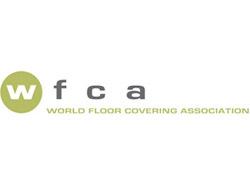WFCA Opposes New Silica Work Proposal
Anaheim, CA, March 3, 2014 -- The World Floor Covering Association has notified the Occupational Safety and Health Administration of the association’s objections to new rules that have been proposed for work involving crystalline silica.
“WFCA fully supports the general concern over worker safety,” said WFCA CEO Scott Humphrey.
“But the scientific evidence regarding the risks from exposure to crystalline silica simply does not justify imposing the substantial costs of compliance with the new proposal on retail flooring dealers.”
Crystalline silica is a naturally occurring substance found in sand and stone. It is present in flooring products that are sourced from sand and stone, including tiles, glass, concrete, and grout
OSHA based its new regulatory proposal on studies of the cumulative effect of crystalline silica inhalation on miners, quarry workers, and others exposed to this hazard daily for more than 20 years.
WFCA said it told the government that flooring installers are exposed to crystalline silica dust only occasionally, such as when they cut tile or stone flooring, repair concrete, or remove grout.
But if the proposed new standards are applied to the operations of independent flooring retailers, those dealers would have to incur substantial costs for new equipment, continuous medical examination and air monitoring, and extensive record-keeping.
According to the WFCA, the proposed standard cuts previously established exposure limits in half and would require employers to:
• Measure the amount of silica dust that every worker is exposed to in an average 8-hour day;
• Buy and use certain equipment, such as stationary masonry saws, equipped with integrated water delivery systems and HEPA vacuums;
• Limit access of workers to areas that have dust concentrations above the proposed permissible level, but not allow employee rotation to minimize exposure;
• Provide respirators to workers when dust controls cannot limit exposure to the new permissible level;
• Offer medical exams-including chest X-rays and lung function tests-at employer expense every three years for workers exposed to conditions above the new permissible levels for 30 or more days per year;
• Provide guidelines and train workers on work operations that result in silica exposure and offer ways to limit exposure; and
• Keep records of workers' silica exposure and medical exams.
Humphrey explained that the WFCA opposes application of the proposed new rules to retail flooring dealers because of the relatively limited exposure of the dealers’ workers to crystalline silica dust.
